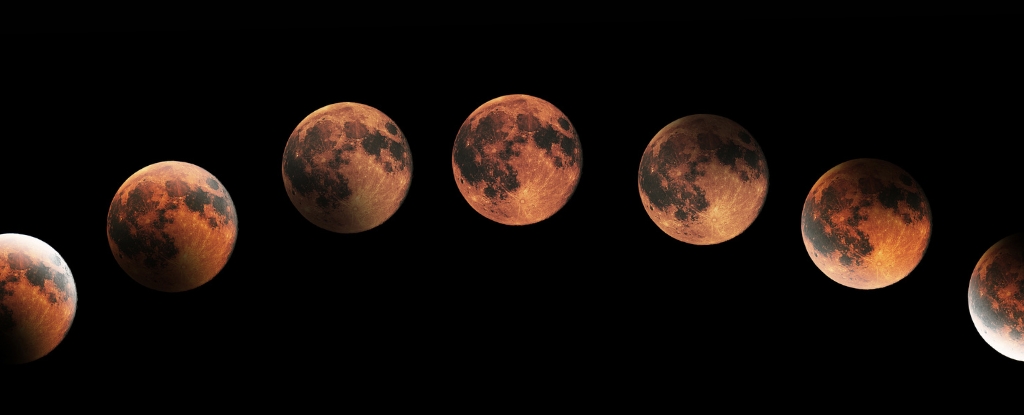
Stargazers around the world are gearing up for a remarkable astronomical event, as a total lunar eclipse, known as the “Blood Moon,” is set to occur on Sunday night. This phenomenon will be visible across parts of Asia, Europe, and Africa, providing a stunning display as the Earth casts its shadow on the Moon, giving it a striking deep red hue.
The total lunar eclipse will take place between 17:30 GMT and 18:52 GMT. Observers in Asia, particularly in countries like India and China, will have the best vantage points. People on the eastern edge of Africa and in western Australia will also have opportunities to witness this celestial spectacle. Meanwhile, viewers in the Americas will unfortunately miss out on this event.
The reddish appearance of the Moon during a lunar eclipse is a result of sunlight being filtered and reflected through the Earth’s atmosphere. According to Ryan Milligan, an astrophysicist at Queen’s University Belfast, “Blue wavelengths of light are shorter than red ones and are more easily dispersed,” which is what gives the Moon its distinctive red color during these events.
Unlike solar eclipses, which require protective glasses or special equipment to view safely, lunar eclipses can be observed with the naked eye, provided the weather is clear and viewers are in the right location.
The upcoming eclipse follows a recent total lunar eclipse that occurred in March 2024. Milligan, who has traveled the globe to witness numerous eclipses, describes this event as a precursor to an even more significant occurrence next year. A total solar eclipse, when the Moon completely blocks out the Sun’s light, will be visible in a narrow band across parts of Europe on August 12, 2026. This will mark the first total solar eclipse visible from mainland Europe since 2006.
In Spain, the totality of the solar eclipse will be visible within a 160-kilometre (100-mile) corridor stretching between Madrid and Barcelona, although neither city will experience the full phenomenon. Other regions will also witness a significant partial eclipse.
Milligan, a self-described “solar eclipse chaser,” has dedicated over a decade to observing lunar and solar eclipses, having experienced 12 totalities during his journey. The anticipation for next year’s total solar eclipse is building, especially following the total solar eclipse that swept across North America in April 2024.
As stargazers prepare for this weekend’s total lunar eclipse, the excitement is palpable. With accessible viewing conditions and a captivating display, the “Blood Moon” promises to be a memorable event for astronomy enthusiasts and casual observers alike.






